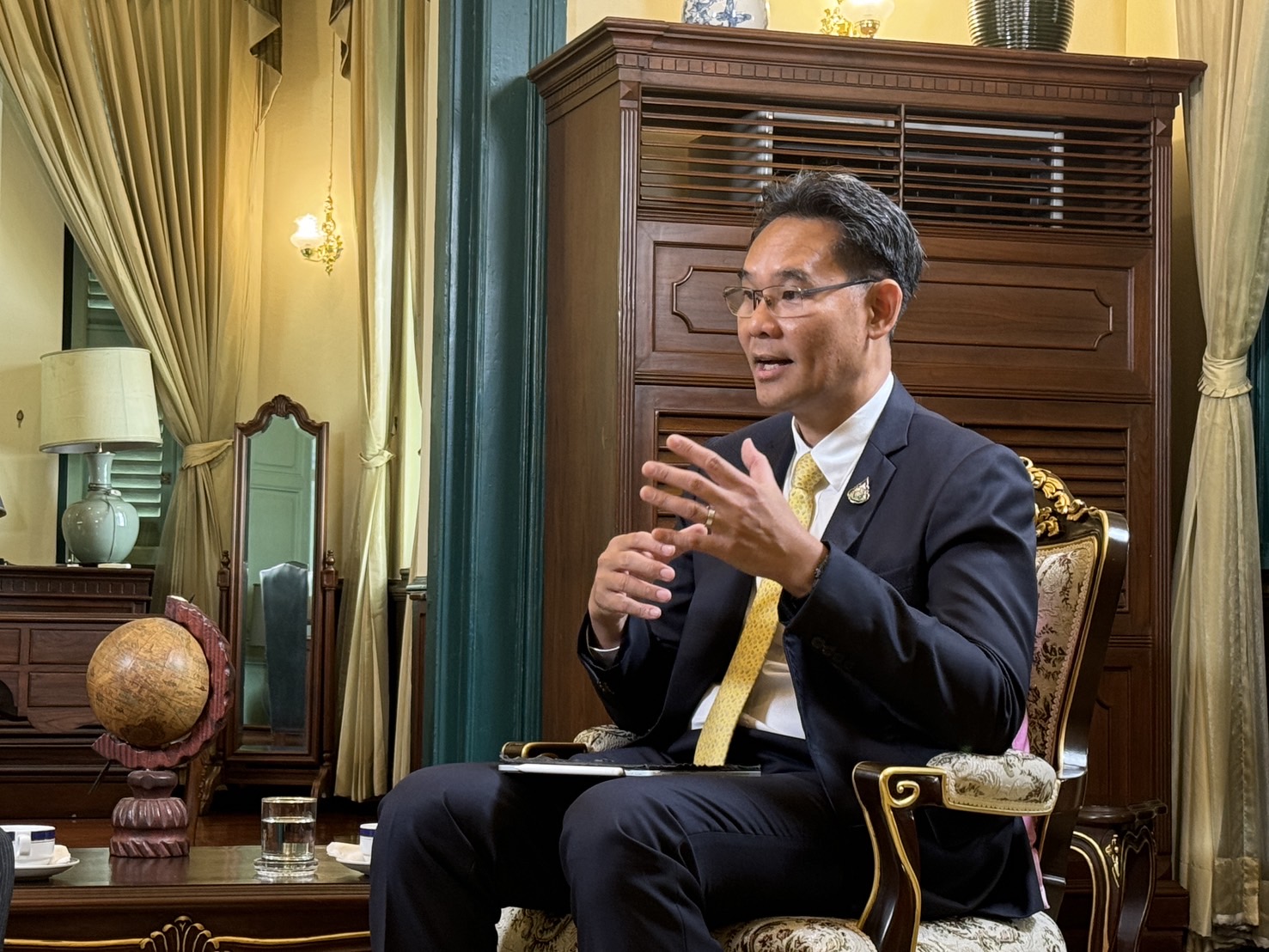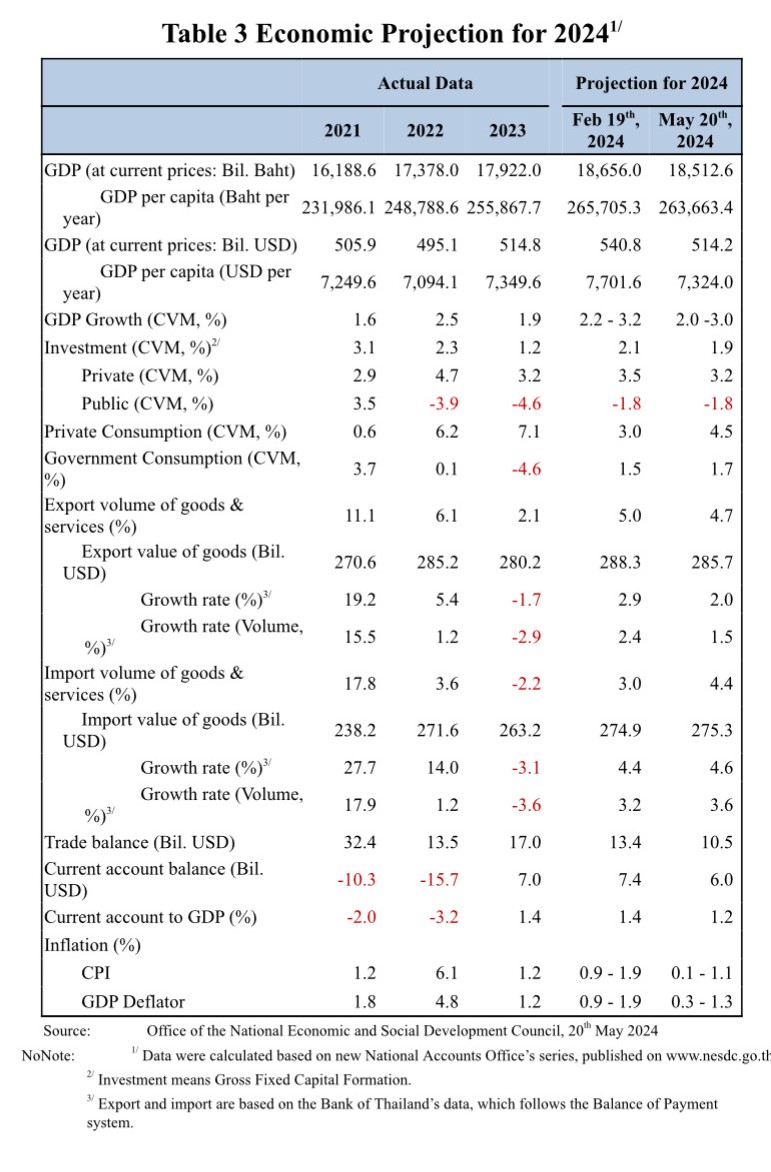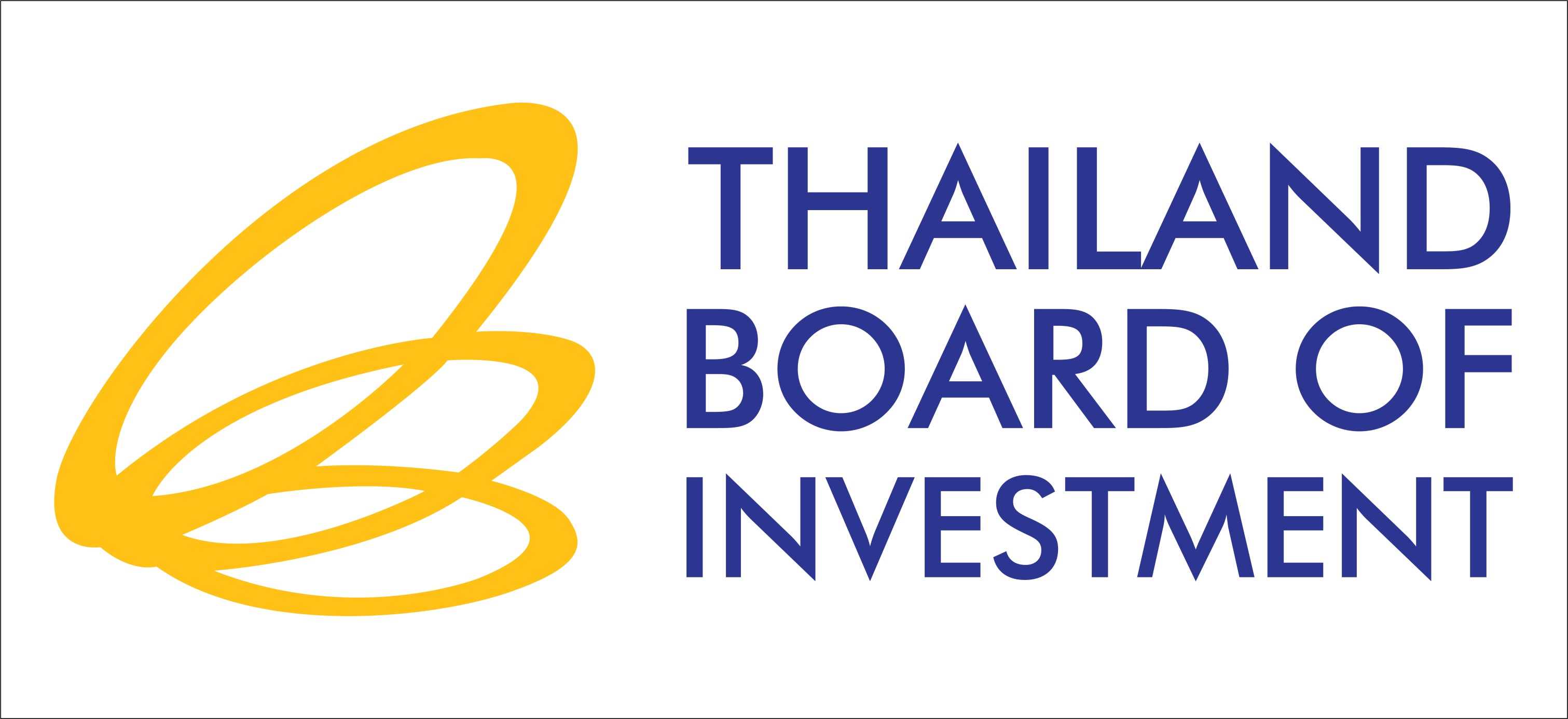Economy/Thai economy
Economy/Thai economy
Chatrudee Theparat
NESDC revised down the Thai economy this year to 2.7% from previous 2.7% as of February 18.
Secretary General to the National Economic and Social Development Council (NESDC) Danucha Pichayanan said the Thai economy in 2024 is projected to expand in the range of 2- 3 % (with the midpoint projection of 2.5 %).

Danucha Pichayanan
“The projection is revised down from a midpoint projection of 2.7% as of February 18 because of less contribution from exports.”
The agency also reported the Thai economy in the first quarter of 2024 grew by 1.5%. Main contributions are from the private investment and tourism industry.
“The Thai economy in the first quarter of 2024 expanded by 1.5 %(%YoY), continuing from 1.7 % in the previous quarter. After seasonally adjusted, the economy increased by 1.1 % from the fourth quarter of 2023(%QoQ sa).”
He said the key supporting factors include: (1) the expected higher momentum from government expenditure and public investment over the remaining of the year; (2) the continual recovery of the tourism sector; the agency projected 36.5 million foreign visitors this year, generating 1.38 trillion baht revenue; (3) The favorable growth of private consumption and investment; and (4) the gradual return to an expansion of goods exports in line with the global trade recovery.
Nonetheless, the Thai economy is still expected to face some downside risks and limitations that could result in a lower-than-expected expansion, especially:(1) the remaining high levels of household and corporate debts; (2) the risk of flood on agricultural production; and (3) the uncertain and volatile global financial market. Headline inflation is estimated to be in the range of 0.1 - 1.1 % and the current account is projected to record a surplus of 1.2 % of GDP.
Private consumption expenditure is expected to increase by 4.5 % , continuing from a solid growth of 7.1 % in 2023, and an upward revision from 3 % in the previous estimation.
Government consumption expenditure is projected to expand by 1.7 %, improving from a 4.6 % reduction in 2023, and an upward revision from a 1.5 % growth in the previous estimation.
The adjustment aligns with the disbursement of government expenditure after the enactment of FY2024 government budget on April 26th, 2024 and an upward revision in the FY2025 government budget framework.
Total investment is expected to increase by 1.9 %, accelerating from a 1.2 % in 2023. Private investment is estimated to increase by 3.2 %, consistent with the previous year’s growth. This was in accordance with the continuous growth of investment promotion application and certificate issuance.
Nevertheless, this was a downward revision from a 3.5% in the previous estimation in accordance with remaining low capacity utilization rate and downward revision of exports.
Public investment is anticipated to decline by 1.8 %, consistent with the previous estimation, and continuing from a 4.6 % decrease in the previous year, including a delay in the FY2024 budgetary process and a decrease in the State-Owned Enterprises’ investment budget framework.
Export value of goods in US dollar terms is anticipated to rebound to 2 %, compared with a 1.7 % reduction in 2023, though a downward revision from a 2.9 % growth in the previous estimation.

The export volume in 2024 is expected to increase by 1.5 %, compared with a 2.9% decline in the previous year, and a downward revision from a 2.4% in the previous forecast.
The revision is due to a decline in export volume in the first quarter of 2024 and the downward revision of the world trade volume growth forecast.
Together with the continual increase in export of services due to higher-than expected inbound tourists, thus, in 2024, it is expected that the export quantity of goods and services will continue to increase by 4.7 %, accelerating from a 2.1 % in 2023, but a downward revision from a 5 % in the previous estimation.
The agency proposed the economic management for 2024 as follows:
The economic management for the remainder of 2024
1) Expediting the budget disbursement
2) Maintaining adequate liquidity for the business sector, especially SMEs
3) Supporting agricultural production and farmers’ income
4) Fostering the export sector as well as expediting the restructuring of the economy both manufacturing and service sector
5) Monitoring and preparing measures to address risks arising from fluctuations in the global economic and financial system.
20 May 2024
Viewed 118 time
 EN
EN 




